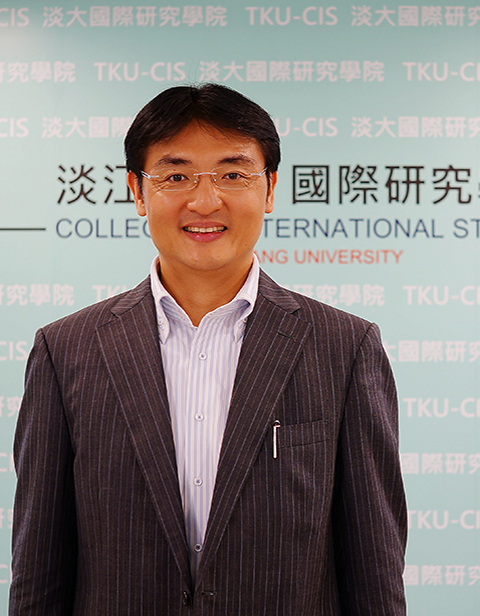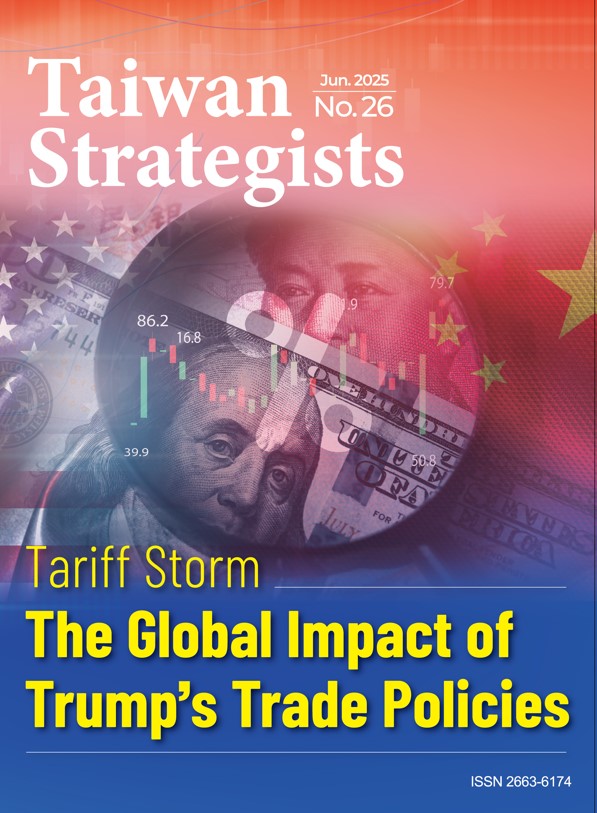Taiwan Strategists No. 26
Economic Impacts of Trade Policy Uncertainty
in the U.S.-China Trade War
Meng-Chun Liu
Research Fellow and Director, Mainland China Division
Chung-Hua Institution for Economic Research
Chia-Hsuan Wu
Research Fellow and Deputy Director, Mainland China Division
Chung-Hua Institution for Economic Research
Abstract
This study examines the economic consequences of the U.S.-China trade conflict, highlighting trade policy uncertainty (TPU) as a primary driver of disruption — more so than the tariffs themselves. The Trump administration’s erratic and contradictory policy actions have fostered a climate of sustained unpredictability, destabilizing conventional expectations in global trade. This uncertainty has significantly dampened business investment, constrained labor market activity, weakened consumer sentiment, and hindered innovation in both the United States and China. It has also induced structural shifts in global supply chains and altered cross-border capital flows. These effects have extended beyond the bilateral conflict, amplifying global economic vulnerabilities and exposing institutional weaknesses in trade governance. The findings underscore TPU as a persistent and independent force shaping macroeconomic outcomes, with broad implications for corporate strategy and international policy design.
Keywords: Trade Policy Uncertainty, U.S.-China Trade War, Investment, Labor Market, Consumer Confidence, Global Economy.
Under the Threat of Trump’s Tariff War:
Japan’s Response Strategy and Diplomatic Outlook
Hong-Hsin Hsu
Associate Professor, Department of Global Politics and Economics, Tamkang University
Abstract
Since Donald Trump returned to the White House on January 20, 2025, he has consistently elevated the issue of tariffs to a national security level, attempting to reorganize the global political and economic order as a demonstration of his approach to diplomacy. On April 2, in a speech at the White House Rose Garden, Trump announced a brand new dual-layer tariff system, officially designating it as the “Liberation Day” tariffs. The new tariff measures have clearly indicated Trump’s strategic intent to reshape the global political and economic order and the international trade system. This intention has become evident through the process of U.S.-Japan tariff negotiations. Trump’s tariff war has not only had a profound impact on the Japanese economy, but Japan is already on high alert, fearful of the potential future consequences and impacts. This article analyzes the motives behind Trump’s tariff war and how Japan should prudently respond to Trump’s negotiation tactics and pace.
Keywords: Trump’s Tariff War, U.S.-Japan Tariff Negotiations, Reciprocal Tariffs, Japan-U.S. Summit
Responding to the New International Trade Order Amid the U.S. Tariff Shock:
Opportunities and Challenges for Taiwan
Jiann-Chyuan Wang
Vice President, Chung-Hua Institution for Economic Research
Abstract
U.S. President Donald Trump dropped a bombshell on April 2, dubbed “American Liberation Day,” by imposing high reciprocal tariffs on many countries, triggering a backlash. However, on April 9, Trump made a U-turn and announced a 90-day extension, before which only a 10% general tariff would be imposed. If the tariff rate remains high after 90 days, how big will its impact be on the global and Taiwanese economies and industries? How should the supply chain be adjusted? What are Taiwan’s possible negotiating strategies toward the United States within these 90 days? What price will Taiwan have to pay? What changes will occur in Taiwan’s economy and industries after Trump imposes the tariffs? This paper analyzes the above issues and proposes strategies for the government and enterprises on how to respond.
Keywords: President Trump, U.S. Tariff Policy, Reciprocal Tariffs, Taiwan’s Response Strategy, Sovereign Fund





